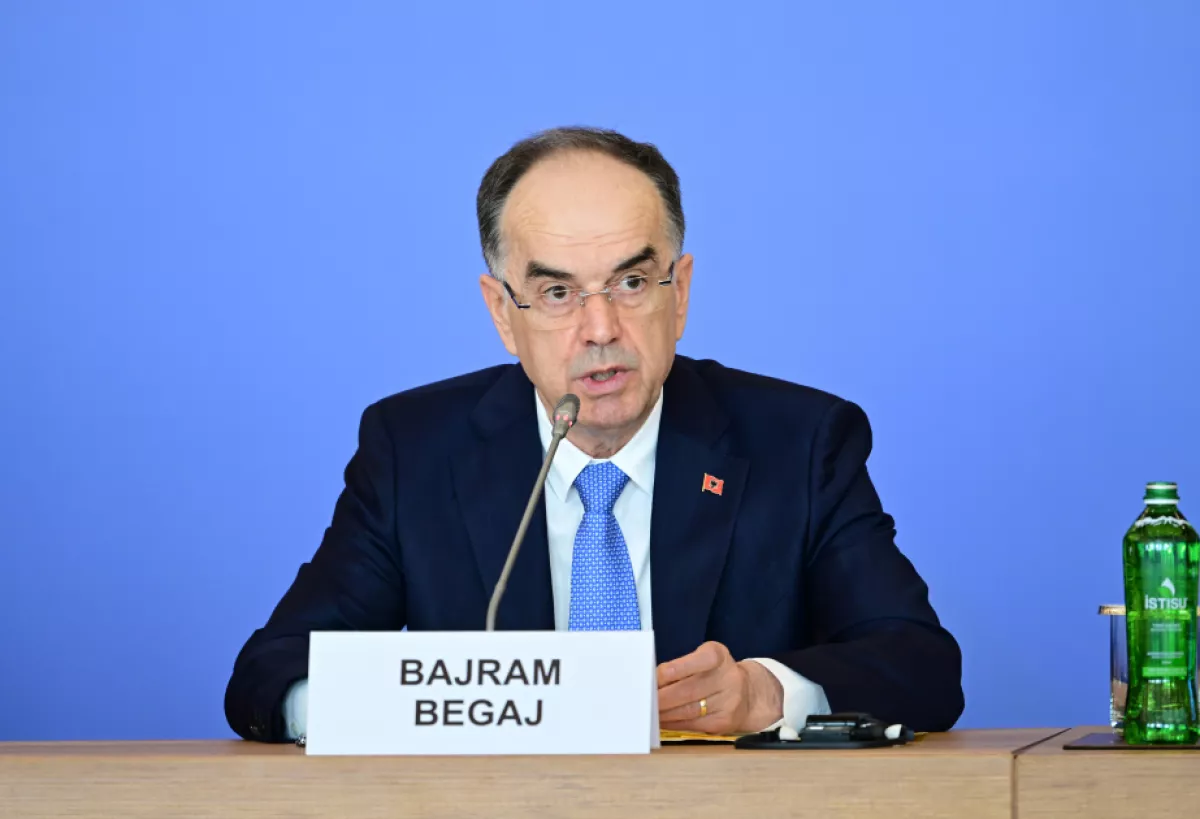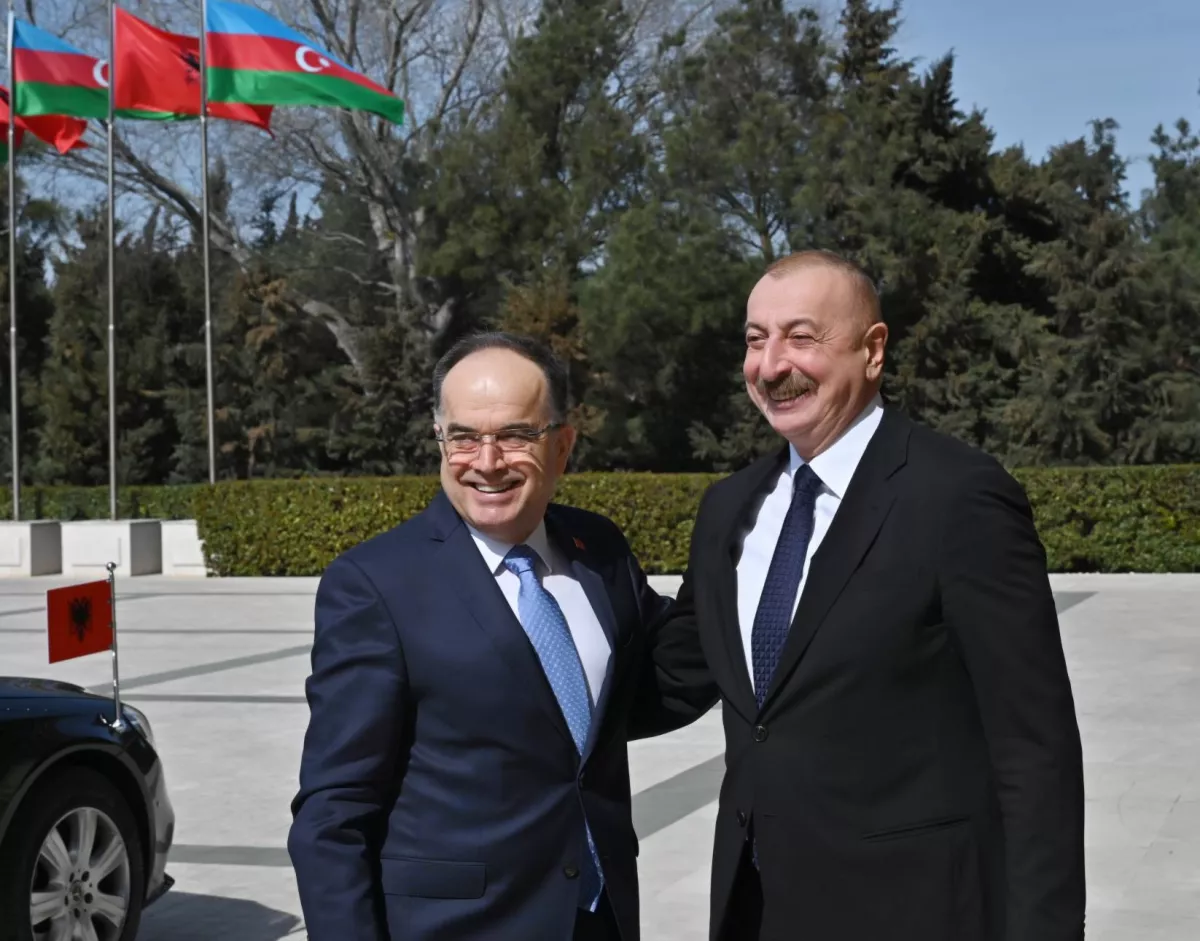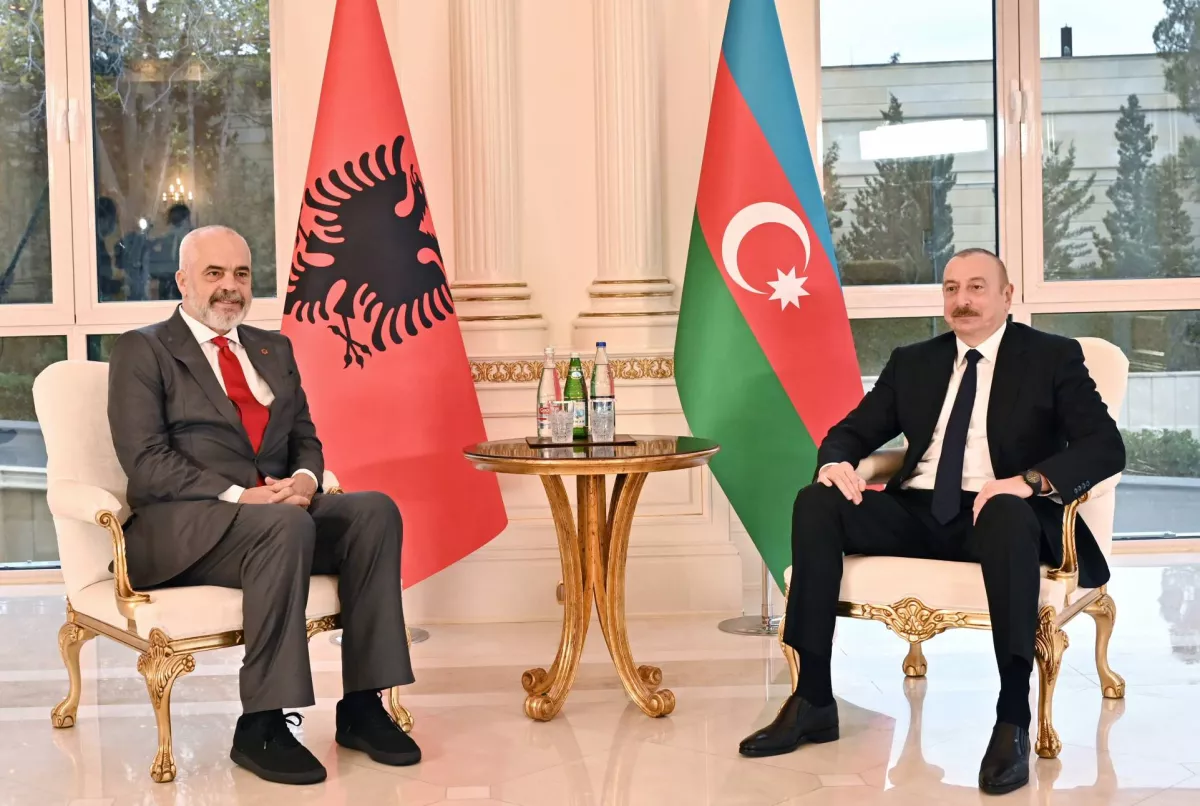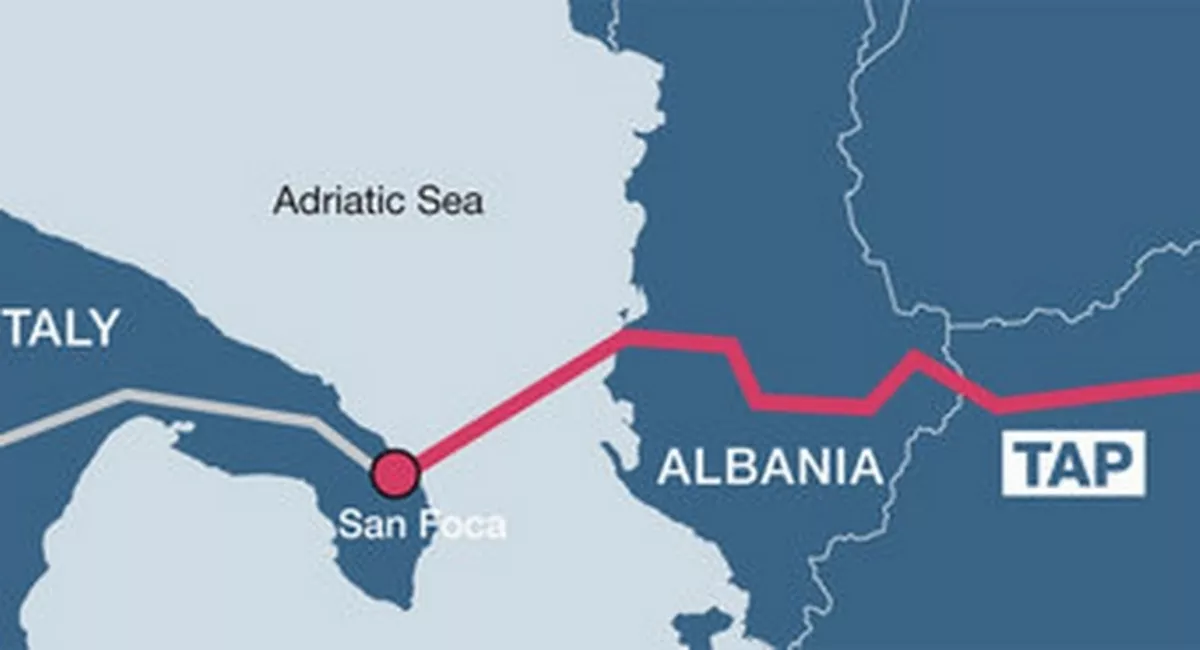Azerbaijan – Albania and geopolitics of trust When distance is no obstacle
In global geopolitics, the foundation—or rather, the backbone—of bilateral relations means a great deal. These ties must be carefully nurtured. Sometimes over the course of years, and often over decades. Then, political continuity must emerge on the surface to preserve and strengthen them.
It is encouraging to see precisely this kind of progression reflected in the mutual understanding between Azerbaijan and Albania across virtually all fields. As early as 2000 and 2002, National Leader Heydar Aliyev expressed confidence that the “friendly ties and cooperation established between Azerbaijan and Albania will continue to grow and expand for the well-being of our peoples, serving their interests, as well as the cause of peace and security.”

And it is perhaps no coincidence that just over 20 years later, Albanian President Bajram Begaj, speaking at the 10th Global Baku Forum during an event dedicated to the 100th anniversary of Heydar Aliyev’s birth, referred to the National Leader as a “renowned global statesman” who, having overcome difficulties, carried out reforms and earned the trust of his people through wisdom.
Expressing his admiration for Heydar Aliyev’s genius, Bajram Begaj effectively acknowledged how well-founded the late leader’s confidence had been. Emphasising that Heydar Aliyev had “become a visionary of Azerbaijan’s future,” the Albanian president voiced his support for the pursuit of “friendship and partnership” and his desire to advance them further. And, as if in response to what Heydar Aliyev had once said at the turn of the 21st century, Begaj declared: “We will continue our cooperation and partnership for future generations, moving together towards prosperity.”
Let us agree that the above clearly illustrates the very points we emphasised at the beginning of this piece regarding the foundations of bilateral relations between countries.
Returning to the participation of the Albanian head of state in the 10th Global Baku Forum, it is worth noting that in his address, he described the forum as a platform that offers “hope in a world of uncertainty,” particularly by identifying new opportunities to overcome challenges. He underscored that the longstanding friendship between Baku and Tirana is reflected in their mutual cooperation—especially in the fields of economy and infrastructure projects. As he eloquently put it, “Although we are geographically far apart, we can build the future together with our peoples, neighbours, and partners.”
Even based solely on the remarks made by Bajram Begaj, one can clearly discern the special format of Albanian-Azerbaijani relations—reflected, among other things, in the repeated mutual visits of the two countries’ heads of state, as well as the visits of Albanian Prime Minister Edi Rama to Baku. Naturally, it is not the visits themselves that matter most, but the substance they carry. This was vividly demonstrated during Bajram Begaj’s official visit to Azerbaijan in 2023.
But before delving into that, let us draw attention—perhaps surprisingly for some—to a fact noted on the website of France’s Ministry of Foreign Affairs: Albania is described as “one of the strongholds of Francophonie in the region.” It is in this context that, during a press statement following his 2023 talks with President Begaj, President Ilham Aliyev expressed his gratitude to the Albanian president and government for supporting “Azerbaijan during the last year's Francophonie Summit, where there was an attempt by one member state of Francophonie to pass the paragraph and to include the paragraph into a final document - a paragraph of anti-Azerbaijani substance. Albania was the country that blocked that.”
President Ilham Aliyev praised this as a demonstration of friendship and firm commitment to “basic principles of international law, territorial integrity and sovereignty of the countries.” “Even in the organisations where Azerbaijan cannot defend itself,” the President of Azerbaijan remarked, “we have a brother like Albania who did it. We're very grateful for that.”

What further commentary is really needed after the words spoken by the Head of State? Perhaps only the acknowledgement of one more important fact: the signing, back in 2014, of a Memorandum of Understanding on cooperation in the development of Albania’s gasification master plan.
Fast forward to April of this year, when the gasification project for the Albanian city of Korçë was officially presented—set to be implemented with funding from Azerbaijan. According to Albanian Prime Minister Edi Rama, who attended the event, this initiative is being realised “at a very important and strategic moment for Albania, as the country is on the verge of becoming the highest energy-producing state in the region.” He further specified that the project is expected to be completed by the end of 2026 and, starting from 2027, will “supply gas to the residents of Korçë.”

Albanian Prime Minister Edi Rama highlighted a key feature of this initiative: amid Tirana’s efforts to diversify its energy portfolio through investments in the development of the energy sector, this particular project represents an unprecedented level of support from Azerbaijan—a reference to the $20 million funding commitment.
Moreover, the implementation of this project coincides with the start of work to connect Albania’s energy infrastructure with Italy, which will allow Albania to attain a strategically advantageous position in energy transmission.
For his part, Azerbaijan’s Minister of Energy, Parviz Shahbazov, noted that both countries, as participants in the Southern Gas Corridor (SGC), are successfully cooperating in strengthening Europe’s energy security and diversifying energy supply sources. As evidence, he cited the delivery of 45.5 billion cubic metres of Azerbaijani natural gas to European markets through Albanian territory since 2021—a process in which the development of gas distribution infrastructure across Europe plays a significant role.
While the initial step under current agreements is the creation of a municipal gas distribution network prioritising service to local enterprises, the broader objective is to connect this distribution system to the exit point of the Trans Adriatic Pipeline (TAP).
In this regard, it is worth recalling that the Trans Adriatic Pipeline (TAP), as the final segment of the Southern Gas Corridor (SGC), begins at the Turkish-Greek border and runs through Greece and Albania before reaching its terminal point in Italy. In other words, TAP—Europe’s branch of the SGC—facilitates the delivery of Azerbaijani natural gas to Europe via Albanian territory.
Of particular note are Tirana’s plans to establish a connection between the Vlora Thermal Power Plant and the TAP pipeline, as well as a liquefied natural gas (LNG) terminal—developments that are expected to enhance not only Albania’s energy security but also that of the wider region.

In the context of the Korçë project, it is also important to highlight that more detailed discussions are anticipated regarding the potential gasification of the Albanian cities of Pogradec and Ersekë. Meanwhile, the Albanian government aims to complete the development of the country’s national gas infrastructure by 2030. In light of this, SOCAR is also examining the prospects for using Albania’s underground gas storage facility located in the city of Dumreja.
This dynamic was aptly summarised by President Bajram Begaj in a press statement following his 2023 talks with President Ilham Aliyev. He described the Trans Adriatic Pipeline (TAP) as a “consolidated success story,” from which Albania had greatly benefited—both economically and in terms of strengthening its strategic significance as a regional gateway and energy hub.
In this context, the planned Adriatic-Ionian gas pipeline is expected to further enhance Albania’s role as a gas distributor in the region, especially as Tirana, in close partnership with Azerbaijan, is prepared to take decisive steps towards the full gasification of the country. President Begaj elaborated by saying that “Albania, as a gas transit country, is already a reality.”
Against this backdrop, Albania remains committed to the goal of becoming not only a transit state but also a recipient and transporter of gas, a goal underpinned by its deepening energy cooperation with Baku. Tirana also welcomes Azerbaijan’s growing interest in advancing regional energy projects—initiatives that will not only bring Western Balkan countries closer together, but also strengthen their collective energy security.
In the context of the growing partnership between the two nations, it is also important to highlight the mutual abolition of visa requirements for citizens of Azerbaijan and Albania in 2024. Notably, the same year saw the signing of the Agreement on Economic Cooperation between the two governments, which outlined priority areas including trade, investment, energy, transport, infrastructure, agriculture, tourism, environmental protection, and the humanitarian sphere.
This last dimension was vividly reflected in the Azerbaijani Culture Week held in Tirana two years earlier. The event showcased the rich cultural heritage, culinary traditions, and artistic treasures of Azerbaijan—with a highlight being the performance of Azerbaijani national music in Tirana’s central Skanderbeg Square.
Undoubtedly, the aforementioned facets of Albanian-Azerbaijani mutual understanding reflect the essence of President Ilham Aliyev’s remarks in his letter to Albanian Prime Minister Edi Rama on 15 May 2025, in which he congratulated Rama’s Socialist Party on its electoral victory. In the letter, President Aliyev reaffirmed the high level of bilateral relations and cooperation between the two countries, expressing confidence in the further expansion of mutually beneficial ties on both bilateral and multilateral platforms.
Thus, even a brief overview of the depth and dynamism of Azerbaijani-Albanian relations convincingly illustrates the broad prospects for mutual understanding between Baku and Tirana. This is further underlined by the working visit of President Ilham Aliyev to Albania, which commenced on May 15 at the invitation of Prime Minister Edi Rama and President of the European Council António Costa, for participation in the sixth summit of the European Political Community.








